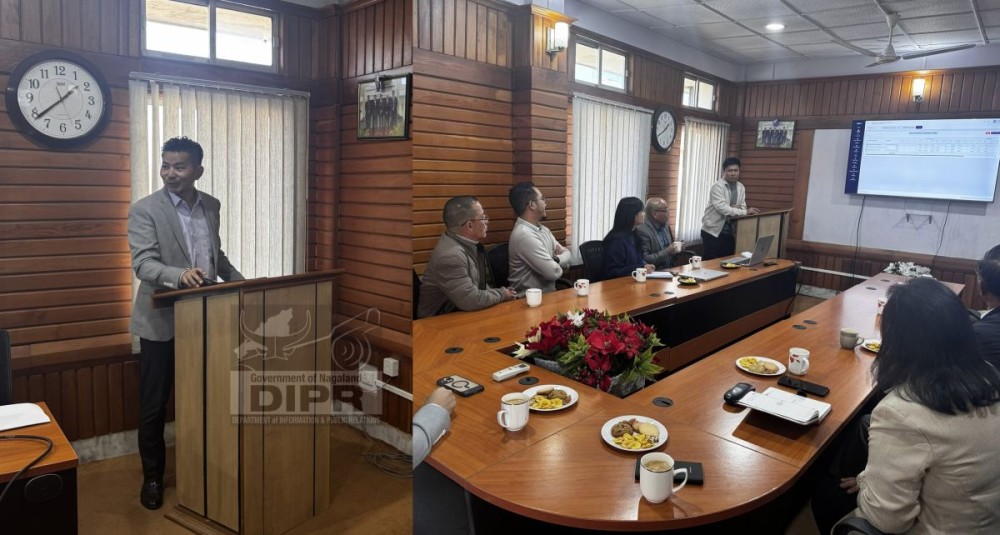Kesonyu Yhome, speaking at the launching a new e-Pay Bill System.

Dimapur, November 28 (MExN): The Department of Treasuries & Accounts has launched a new e-Pay Bill System, introducing what it described as a major advancement towards more efficient and transparent financial management in the State.
According to the Department, the system was developed entirely in-house and is hosted at the State Data Centre. It enhances the earlier e-Pay application by providing faster bill preparation, smoother processing, and improved coordination with other Treasury applications. It is integrated with TreasuryNet, eNPS and the Grade IV e-GPF system to reduce manual work and minimise clerical errors in areas such as salary bills, deductions and GPF contributions.
The system is designed to be more user-friendly. It allows quicker selection of employees for bill preparation and automatic generation of challans for deductions including Professional Tax, GPF and House Tax. Budget details and specific deduction data are now drawn directly from TreasuryNet to support streamlined functioning of Drawing and Disbursing Officers.
Launching the application at the Directorate, Finance Commissioner Kesonyu Yhome congratulated the officers and the IT team for developing the system within the Department. He said it was “a proud moment for the State” and added that creating an in-house solution “gives greater ownership and satisfaction, while also providing a strong foundation for further strengthening and consolidating the State’s financial systems.”
The idea for the new e-Pay Bill System was first proposed by Chief Secretary Sentiyanger Imchen when he was the Finance Commissioner. Development of the application took around six months, followed by about two months of testing and trial runs. A brief presentation was made by Additional Director Vechiso Chakhesang before the formal launch.
The Department stated that the new e-Pay Bill System is expected to make bill preparation and payment more efficient, accurate and reliable for stakeholders across the State.






